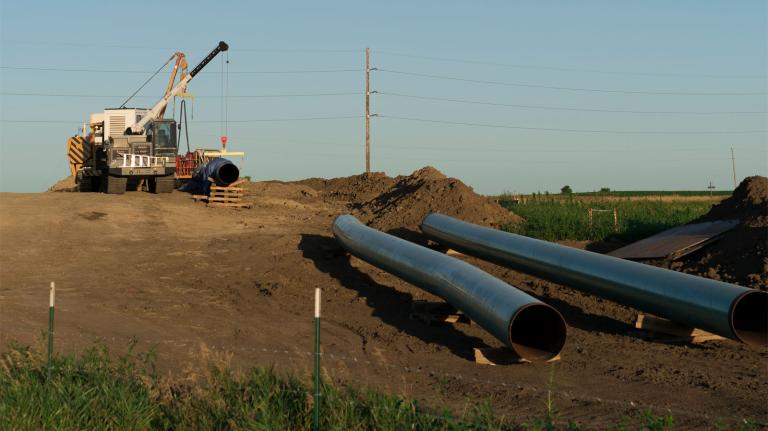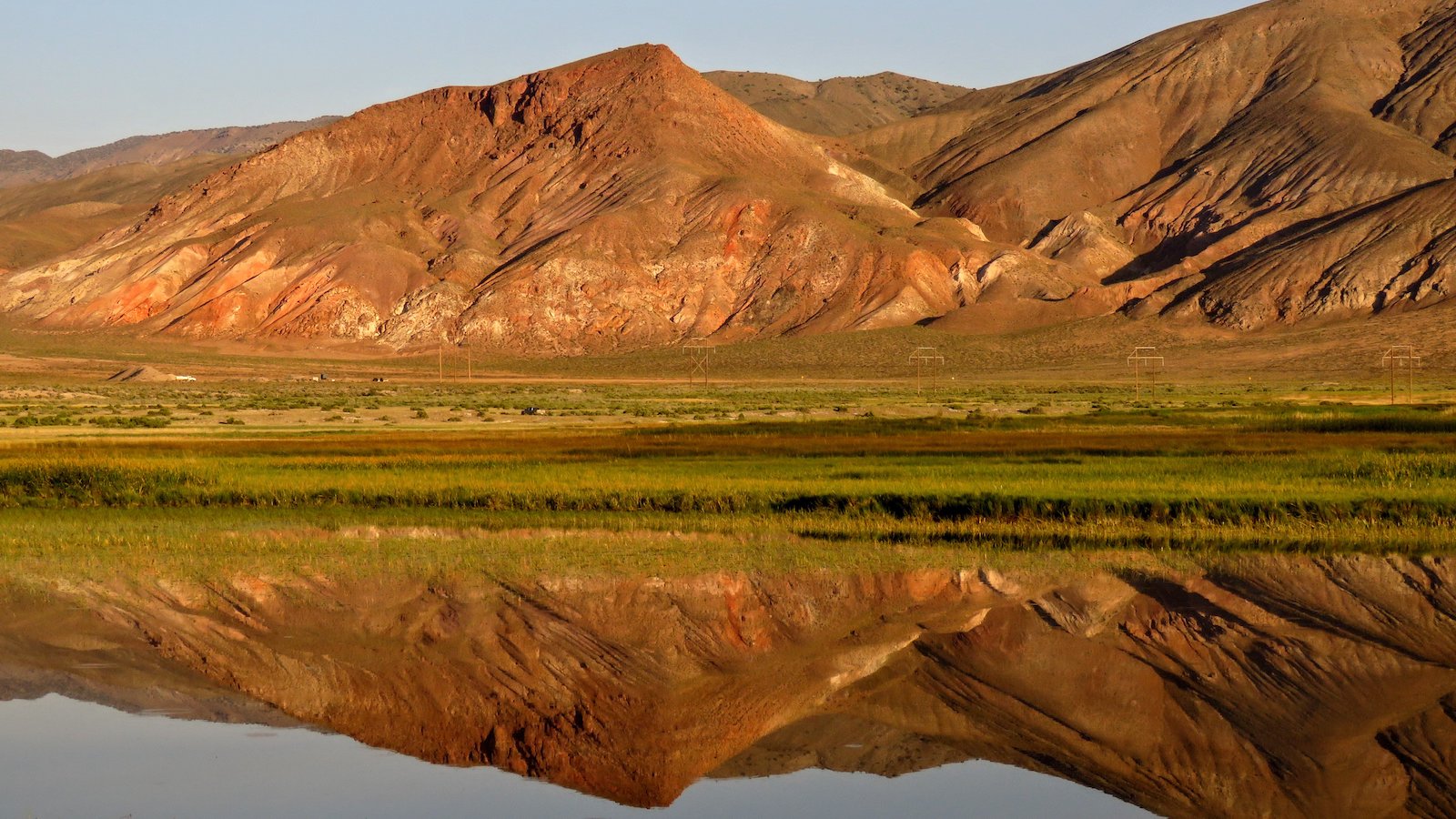The Biden administration is facing critical questions about how to balance the urgency of transitioning to clean energy with other progressive priorities. On Monday, a U.S. district judge halted construction of two geothermal power plants on public land in Nevada. The decision was in response to a lawsuit filed in December by the Center for Biological Diversity, an environmental nonprofit, and the Fallon Paiute-Shoshone Tribe, against the Bureau of Land Management, or BLM, for approving the project.
Geothermal power plants pump hot water from deep underground and use it to generate steam to produce clean electricity. The Nevada plants are set to be built on a verdant wetland in the desert called Dixie Meadows. The suit alleges that the project threatens to dry up the hot springs that support the wetland and are of religious and cultural significance to the Fallon Paiute-Shoshone. The ecosystem is also home to the Dixie Valley toad, a species that is not known to exist anywhere else on Earth.
“The United States has repeatedly promised to honor and protect indigenous sacred sites, but then the BLM approved a major construction project nearly on top of our most sacred hot springs,” said Fallon Paiute-Shoshone Tribal Chair Cathi Tuni in a statement. “It just feels like more empty words.” Tuni went on to say that the tribe has not opposed geothermal projects elsewhere in the Dixie Valley but that it had a duty to protect this site.
The conflict illustrates the challenges the Biden administration will face in pursuing the rapid energy transition that’s required to stabilize the climate, while also trying to repair relations with Tribal Nations, increase U.S. conservation, and protect biodiversity. Energy development has always involved trade-offs, but the stakes are higher today, with many in the climate movement asserting that the transition to renewables should not repeat historically exploitative practices.
Geothermal power plants currently produce a small fraction of U.S. electricity — only about 0.5 percent in 2020. But an analysis by the Department of Energy found that with improvements in technology, that number could go up to 8.5 percent by 2050. Geothermal power plants have several relative advantages, in addition to not directly producing any carbon emissions. They have a small physical footprint compared to wind and solar farms, and they can provide power 24/7. This kind of always-available, dispatchable source of electricity will be critical for grid reliability as intermittent sources of energy like wind and solar increase.
In its approval for the Dixie Meadows geothermal plants, the BLM wrote that they would help Nevada achieve its goal of getting 25 percent of its electricity from renewable sources by 2025. The agency also cited President Joe Biden’s January 2021 executive order spelling out his government-wide approach to tackling the climate crisis.
But the Center for Biological Diversity says the agency rushed the approval process and ignored the recommendations of government scientists. The lawsuit cites comments submitted by the U.S. Fish and Wildlife Service and the Nevada Department of Wildlife raising concerns about the project’s environmental impacts and the developer’s plan to monitor and address any degradation of the springs.
The plaintiffs have reason to be skeptical. The geothermal company behind the Dixie Meadows project, Ormat Technologies, opened a geothermal power plant in 2011 about 40 miles away on another hot springs called Jersey Valley. The springs dried up entirely a few years after the plant began operating.
The lawsuit also asserts that the project violates the American Indian Religious Freedom Act. “Many of the other springs in the area have been damaged or ruined by development,” the lawsuit says. “Dixie Meadows Hot Springs is therefore the most important and sacred spring to the Tribe, and one of the very last remaining springs in the area.” Members of the Fallon Paiute-Shoshone Tribe use the site for “healing, soaking, camping, and harvesting native plants for weaving and other uses. These practices require quiet for contemplation, and darkness to see the night sky.”
The dispute mirrors other battles over clean energy development in Nevada and elsewhere in the country. In northeastern Nevada, some members of the Fort McDermitt Paiute and Shoshone Tribe and several other tribes and environmental groups are fighting a proposed lithium mine. Lithium is a key ingredient for many of the technologies that will power a fossil fuel–free world, including batteries for electric vehicles.
To date, geothermal power plant development has been limited to areas with known geothermal resources close to the surface of the earth, which are often indicated by natural hot springs. But research underway at the Department of Energy and by private companies to tap into geothermal resources much deeper underground could open up new areas to geothermal development, potentially sparing treasured natural resources like Dixie Meadows.
The injunction issued on Monday is temporary, halting construction of the Dixie Meadows project for 90 days while the U.S. district judge hears the case. The judge said he is “not yet persuaded there is a strong likelihood” of the lawsuit succeeding, but the plaintiffs will have the option of appealing an unfavorable decision to the 9th Circuit Court of Appeals.




